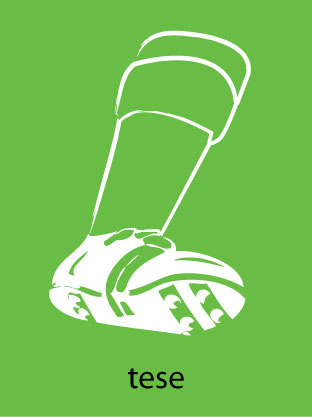Esta pesquisa buscou a compreensão do processo de construção da relação do torcedor vascaíno com o Clube de Regatas Vasco da Gama, Rio de Janeiro. Os objetivos foram: saber o que leva milhões de pessoas a optar por torcer por este clube; conhecer qual o significado deste clube em suas vidas; compreender como essas pessoas vivenciam essas experiências; e identificar quais são as características peculiares do torcer vascaíno. Para tal, optou-se pela abordagem cultural, utilizando como técnica de coleta de campo a observação participante, a análise documental, o diário de campo e entrevistas semi-estruturadas. Este estudo indicou que o torcedor passa a se interessar pela equipe de futebol, em geral, por vínculos familiares, vínculos de amizade, por residir próximo ao clube, por se identificar com a origem e, ou, história do clube ou por vivenciar, nessa fase de escolha, momentos de sucesso ou insucesso dessa equipe. Além disso, o torcer por um clube representa para o indivíduo a possibilidade de “expressão pública de sentimentos”, utilizando uma expressão de Geertz. O futebol seria, assim, um veículo, dentre outros, no qual o indivíduo poderia expressar seus sentimentos de forma pública, que se constrói e se manifesta simbolicamente no seio de determinada cultura. A relação intensa do torcedor com o clube faz com que ele não separe a identidade sujeito/torcedor. Essa identidade é alcançada através de experiências, que incluem momentos de alegria e tristeza nessa história/relação. No que diz respeito às características específicas visualizadas nessa relação torcedor e Vasco, encontrou-se o anticlube – o clube arqui-rival – no caso, o Clube de Regatas do Flamengo. O interessante dessa relação de oposição é justamente o sentido que traz ao torcer vascaíno, como se o torcedor do Vasco se definisse como o não-flamenguista. O torcedor do Vasco identifica seu clube e a sua torcida como diferentes dos outros clubes e das outras torcidas por uma série de valores. Para o vascaíno, o Vasco se diferencia dos outros grandes clubes do Rio de Janeiro por ser um representante de grupos historicamente desprivilegiados na sociedade carioca, entre eles, o negro, o pobre, o português e o suburbano. Essa idéia perpetuou-se pela sua história de afirmação nos anos 20, pela representatividade do “Expresso da Vitória” e pelas conquistas dos anos 70 e 90. Percebeu-se também uma tensão entre as diversas formas de torcer, em que se busca hierarquizar quem é “mais vascaíno”. O Vasco, para seus torcedores, é uma referência de tempo e de espaço. A partir da relação construída com este clube, esses sujeitos se localizam e buscam sentido para suas vidas.

Tese
Tua imensa torcida e bem feliz…
Da relação torcedor com o clube
2001
Faculdade de Educação Física, Universidade Estadual de Campinas
Tese
Doutorado em Educação Física
142
Arquivos
Resumo
Abstract
Sumário
Bola em jogo, 3
Na cara do gol, 7
A construção da jogada, 16
Vasco…Ah, meu Vasco, 24
História de vida vascaína, 32
Coisa de vascaíno, 69
Fim de papo, 122
Referências bibliográficas, 126

